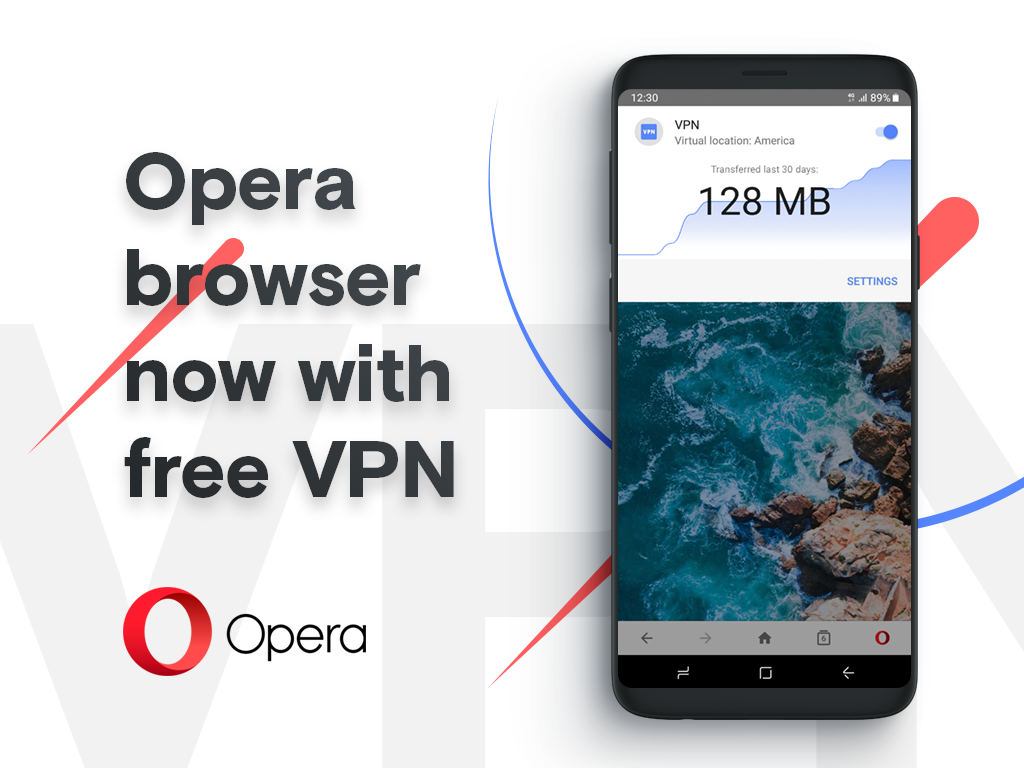Opera has added a privacy feature to its Android browser app that every smartphone user ought to use already — a VPN (virtual private network). The problem is, proper VPN-services tend to come with a monthly fee. Not so with Opera’s new offering.
The update launched last week (look for version 51 and above), and the built-in part means you won’t need to download additional apps or sign into any crummy third-party apps to receive access.
If you’re not quite up-to-scratch with the lingo — a VPN creates a private, encrypted connection between your phone and the internet, which makes it more difficult for hackers to intercept your traffic (even if they’re spoofing a trusted Wi-Fi network, for example), and means your internet service provider or mobile operator can’t track your online activity either. The encryption hides your physical location, and because you don’t have to log in Opera’s browser, the VPN server doesn’t retain any activity data.
Protect your data
Opera’s built-in VPN can also protect you from companies and third-parties stealing your data.
“Users are exposed to so many security risks when they connect to public Wi-Fi hotspots without a VPN. Enabling Opera VPN means that users makes it difficult for third parties to steal information, and users can avoid being tracked. Users no longer need to question if or how they can protect their personal information in these situations,” says Peter Wallman, an Opera’s senior vice president.
Opera launched a standalone VPN app in 2016, which proved very successful. Having it integrated into the browser, though, is way more convenient.
The new version of Opera for Android Started rolling out mid-last week, and will gradually become available across the world. At the time of writing, the latest version is available on some of the Android devices in our office — but it should become available to everyone soon enough.




